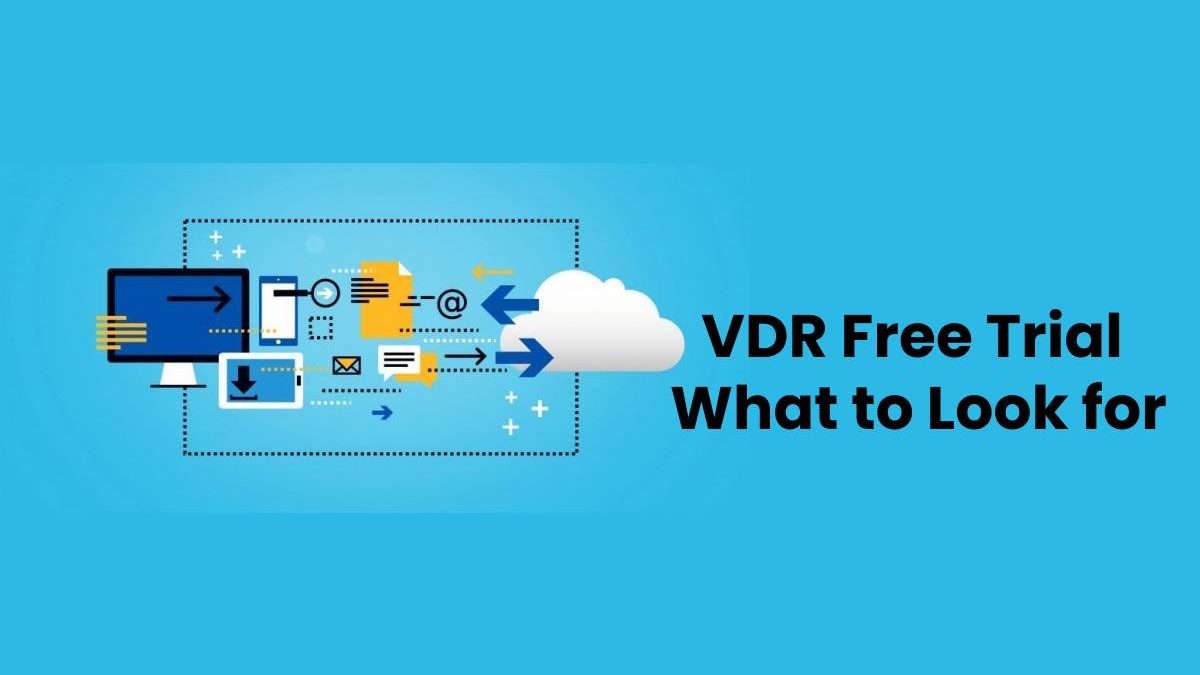Keeping and organizing documentation in any business is a basic rule. Neglecting security and safety of information can lead to data leaks with upcoming undesirable outcomes. Since the volume of information has risen during the last years, the question about its secure storage has arisen.
The traditional place for data storage was a physical data room, which was not safe for storing secure, personal, or financial information.
Trying to solve this question, Virtual Data Rooms (VDRs) come forward. Unlike physical locations with piles of papers under constant surveillance, virtual data rooms keep information in digital format safe and secure.
Raising the Curtain on VDRs
Let us look closer at the purpose of VDR implementation and functionality. If you have a need to store and distribute data with no worries about its safety, you are to try dataroom software. Data rooms serve like online safe boxes for storing personal information, corporate finance, copyright certificates, transactional data, and other confidential info.
Every data room provider offers definite features of VDR. They may be suitable for certain businesses like data rooms for due diligence. These data rooms perform sharing and saving functions like VDRs but are convenient for M&A financial transactions. In cases of mergers and acquisitions, they provide a joint space for several parties to distribute or request needed info.
These cloud-based repositories for information have numerous advantages:
- setting restricted access to documents
- setting restricted actions (printing, downloading, copying, etc.) concerning documentation
- easy management (drag & drop uploading) and user-friendly intuitive interface
- tracking and managing data-directed actions like editing, copying, working time with documentation, and other user activities
- multiple security elements preventing breaches and data leaks from secure data room
- distributing docs online to reduce spending on printing and delivery services
- live communication between VDR participants to simplify the collaboration process and problem-solving issues
Free or Fee-paying?
Such a persuasive list of benefits makes you ask a question about a fee for data room services. First, it is worth mentioning that, unlike cloud storage services, which are more practical for personal needs, virtual data rooms are more suitable for business purposes. The second thing is that good and safe services cannot be free of charge; otherwise, there could be doubts concerning their reliability.
Starting a new business or having a small budget, you may hesitate about the need for investment in dataroom software. Therefore, you start looking for safe but free virtual data rooms. Do they exist?
It is hard to say. Maybe yes, if you need a simple repository for your files with minimal features of virtual data rooms. Choosing to save money, you will get service with a restricted function list, poor customer service, and a shortage of confidence in your data protection. Moreover, in most free trial offers, the space for data storage is usually limited.
No, there are no free data rooms. You have to pay if you require high-quality services peculiar to a virtual data room, immediate customer support, and document safety. But there is good news: most of the fee-paying dataroom software offers free trial versions.
VDR free trial is similar to a test drive of the full range of services possible in the full version. Before buying a VDR product, customers may evaluate the efficiency and necessity of purchasing or price-quality correspondence.
Application of VDR Trial Period in Your Favor
It would be perfect to own a free trial for one month, but most virtual data room providers offer 14- or even 7-day trial periods. It is not a secret that the list of features of every VDR can vary. Features of one data room can be more suitable for M&A, while others are perfect for fundraising or data sharing. So, how to make a good choice? While testing the trial period, it is worth paying attention to the following:
- Customer support. Every support team representative should react to your request as quickly as possible. Do not hesitate to ask any questions. Note the response time and readiness to help.
- Loading speed and easiness. If you intend to apply VDR frequently, pay attention to establishing the data room and documentation loading time.
- Restrictions settings. Since documents kept using VDR services can be private, do not forget about restriction settings while giving access to others. Information leakage because of copying or printing ease can cost a fortune.
- Aiming to share documentation, keep in mind the constant need for changing user access or restrictions. The time-consuming or complicated process of setting changes can lead to inflexibility of collaboration or undesirable open entry to the database.
- Operating system compatibility. Make sure that the operating system of your digital device is powerful enough to ensure VDR software support. If they are incompatible, change the device or VDR provider.
- Main features. In addition to the intuitive interface of data rooms, there must be features suitable for your needs. There is no need to pay for extra features if you do not use their strong points.
- Feedback. Read forums to search for objective information about the pros and cons of chosen data room services.
If after finishing a trial period, VDR services and features fulfilled your expectations, you can buy a full version. If it is not a perfect choice, read a review of some data rooms at https://datarooms.org/. Maybe, there, you will find what you are looking for.
No matter you run a business online or remotely, Virtual Data Rooms seem to be an integral part of reliable data distribution and holding. Providers offering free-of-charge trial periods or, at least, demo versions have higher chances to get more buyers. Potential clients looking for suitable VDR features explore software and are more likely to purchase it.

